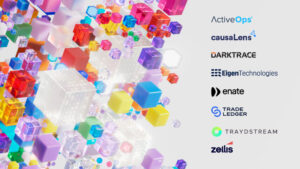
Transforming the urban landscape: ThyssenKrupp Elevator reaches new heights

What happens when urban populations grow faster than the technology they depend on? How do we keep cities, and the buildings and businesses within them, running efficiently? These are the kind of challenging questions that the expert team at ThyssenKrupp Elevator (TKE) aspires to tackle. And with MAX, a proactive service solution for elevator and building efficiency launching today, it has an answer: MAX extends existing remote monitoring capabilities to cut by half the downtime of existing elevators.
Entering the nearly 150-year-old elevator industry only 40 years ago, ThyssenKrupp was quick to make a name for itself with the development of its TWIN elevator and rope-less MULTI technologies. With the recent rise of cloud technology and the Internet of Things (IoT), the company is once again seizing the opportunity to transform an industry that has seen little change since the Industrial Age.
“With cities growing at an astronomical pace, the elevator industry’s slow speed of innovation is becoming a critical bottleneck in modern building development. When our team began to look at best practices from industries where inventory and technology are tightly knit and monitored, such as aviation, we began to ask ourselves, ‘how could we apply that approach to elevators?’” says Andreas Schierenbeck, CEO, ThyssenKrupp Elevator.
ThyssenKrupp had the deep expertise in elevator mechanics and engineering to make this happen, but needed a robust technology solution that could capture and analyze huge amounts of data in real time from millions of elevators all over the world. After Schierenbeck happened to meet then-Microsoft CEO Steve Ballmer at a conference, they hit it off quickly. ThyssenKrupp soon met with Microsoft data scientists and software engineers to explore how the power of Microsoft Azure Internet of Things (IoT) technology could be applied to improve everything from elevator maintenance to building efficiency.
“Microsoft showed it really understood our business and what we were trying to achieve,” says Fabio Speggiorin, executive vice president, R&D and Product Lifecycle Management, ThyssenKrupp Elevator. “With Azure IoT technology, we’re engaged with a product that is mature enough to meet us where we are — in 150 countries, and growing. IoT-enabled technology also provides a one-stop solution that gives us full control over the data we’re collecting from millions of elevator sensors every day. We can shape it to meet our needs, rather than the other way around.”
- Worldwide urban population is expected to grow by 3 billion in the next 30 years, bringing total city dwellers to 7 billion — nearly the entire population on Earth today.
- Most growth will happen in India, China and Nigeria, where 1 billion people will leave more rural areas for urban skyscrapers.
- Urban populations in already dense cities in the Western Hemisphere are also growing.
- Mega-cities of 10 million-plus will grow from 28 in 2014 to 41 by 2030.
- One billion people ride 12 million elevators daily, making it the world’s most-used form of transportation.
Source: ThyssenKrupp Elevator
The conceptual framework for MAX took root with close collaboration between ThyssenKrupp’s experts on elevator function and maintenance and Microsoft data scientists and software engineers, who were steeped in the capabilities of the Microsoft Azure cloud platform. ThyssenKrupp then integrated Microsoft’s expertise in cloud technology, including real-time monitoring and data analytics, with its own high-quality elevator manufacturing and services. The result of these efforts is MAX: a powerful solution that gives TKE unprecedented capability to provide real-time prediction of future repairs, component replacements and proactive system maintenance to its team of over 20,000 global service engineers.

And for Microsoft, the relationship has also provided important learnings. “We’ve had a chance to listen to the teams at ThyssenKrupp and apply those learnings to our latest pre-configured IoT solution, Microsoft Azure IoT Suite, which allows businesses to get started with IoT quickly. We’re eager to see what TKE can do with the Azure IoT Suite as it begins to roll MAX out across North America and Europe,” says Barb Edson, general manager, Marketing, Cloud and Enterprise.
Improving elevator maintenance is about more than minimizing elevator downtime and saving people time getting to and from their office, however. ThyssenKrupp sees MAX as a core piece of a much larger puzzle: figuring out what the cities of the future, where 70 percent of the population will be living by 2050, will look like and can offer.
As cities grow, efficiency and mobility will become ever more crucial. Buildings are already the single largest source of energy consumption, accounting for 40 percent of the world’s energy use. And of that, elevators consume up to 10 percent, making them a significant potential source of cost and energy savings.
Moreover, office workers cumulatively spend as much as 16.6 years annually just waiting for elevators. With MAX running at its full potential, TKE expects this figure could drop by half, increasing efficiency significantly while also saving workers a whole lot of stress.
“Ultimately it’s about making places that are built in ways that prioritize mobility, so people all over the world can get where they want to go as quickly and safely as possible and feel a lot better when they get there,” Schierenbeck concludes.
With MAX, ThyssenKrupp is showing the world how the cloud and IoT can help to bring new ideas to traditional industries, modernizing them for urban environments in ways that will transform how cities are built, how buildings are designed and how companies do business.
Read more about how IoT is changing the culture of business and reshaping manufacturing.




